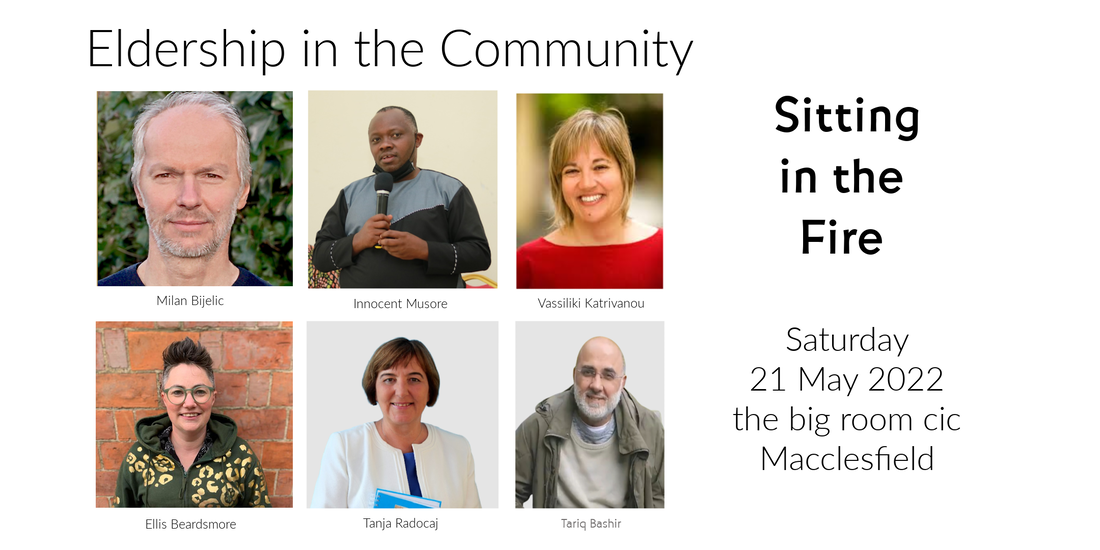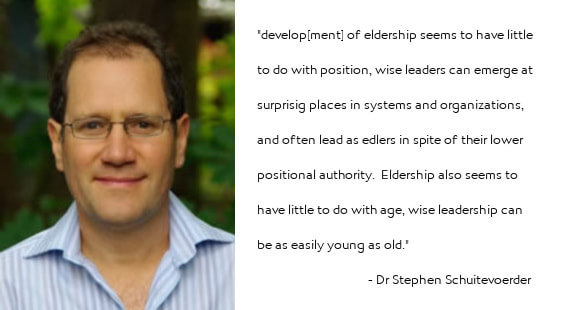|
Join us at the big room cic (Macclesfield/Cheshire) for this half day event facilitated by Milan Bijelić.
Milan is a facilitator affiliated with CFOR (Force for Change) and brings first-hand experience of conflict resolution in Croatia and Rwanda. He will be joined (via zoom) by our five guest speakers who will be sharing their experience of eldership. The subjects covered will include reconciliation and community building (Innocent Musore - Rwanda), women in politics (Vassiliki Katrivanou - Greece), safe space dialogues and immigration (Tariq Bashire - UK), supporting wellbeing in the LGBT community (Ellis Beardsmore - Scotland), post-war reconciliation and community building (Tanja Radocaj - Belarus). There will be an opportunity to ask questions and meet those who have signed-up to the 9 month programme and hear about the local community projects they will be working on over the course of the programme. These include:
The opening event can be attended virtually or in person. Book your free ticket on eventbrite.
0 Comments
The words 'elder' and 'eldership' hold many different cultural connotations. Ingrid Rose, PhD, Faculty Member at the Process Work Institute, Portland, Oregon talks about eldership within the context of process work and the role of the elder in community. About this interview... during this interview several terms are referred to in relationship to ‘eldership’ within the context of process work. A comprehensive glossary of process work terms can be found here. The terms used in the video are:
When someone asks me (Owen) about Eldership in the Community I can find myself caught in a log jam of words, thoughts and a where to begin. The following extract from Dr Stephen Schuitevoerder not only avoids that log jam it also addresses the complex relationship between eldership, leadership and followership... "How many times have we wished for wise leaders who are able to not only express themselves well but also make skilful decisions in each moment of their work? How often have we placed hope in a leader, dreaming that they will take the direction we have been waiting for, only to be disappointed by one poor choice or another? Leading skilfully is challenging.
All of us who have had the fortune of leading, and it is many of us at this moment in one way or another, whether as CEO of an organization or leader of a rock band know of the challenges of leading. It’s the complex task of juggling different pressures, opposing needs and directions, competing visions and limited resources and capacity. What we hope for in others, we struggle with in ourselves. And yet more than ever we need leaders, not just those who can lead but those who can lead skilfully, with wisdom, insight and awareness. Leaders who inspire others as much by what they do as to who they are. Leaders who can weave skilfully between complex demands in such a way that competing concerns are recognized and addressed. Leaders who are more than leaders, who are elders. This developing of eldership seems to have little to do with position, wise leaders can emerge at surprising places in systems and organizations and often lead as elders in spite of their lower positional authority. Eldership also seems to have little to do with age, wise leadership can as be as easily young as old. This book (The cultivation of the elder: the development of wisdom in leadership) is about this very development. It is a step by step pathway in developing greater awareness, of ourselves and others around us. And in this its about how we might cultivate eldership, and work as elders to become more skilful, become wiser, through insight into the complex activities and decisions we make each day, so that those who follow can tread more easily and learn from our modelling. But this book is also about followers, it’s about the moments when a person in leadership disappoints us, it’s about our own ability to respond at this moment and how we can choose to ‘lead’ from a lower positional authority. It’s about the fluidity of leadership, and how we might each work in our own way with our own eldership irrespective of the positional rank we might have. The role of elder at times is the overt leader of a system, but need not be the designated leader of a system. Eldership and wisdom can emerge from any position, and with this emergence lead through its wisdom. And the role of elder is not fixed, it shifts between people, at one moment this wisdom resides with one person and at another moment the wisdom shifts to another. It’s in the field or group, waiting for expression and finding its next most likely inhabitant." Book available on Dr Stephen Schuitevoerder's website |
AuthorPosts are sourced, written and curated by members of the big room cic Archives
October 2023
Categories
All
|
|
the big room cic | reg 12009089 | reg in england & wales | registered office: wood street mill, 45 pickford street, macclesfield, cheshire, sk11 6hb
|
designed by the big room cic © copyright 2019. all rights reserved.
|


 RSS Feed
RSS Feed